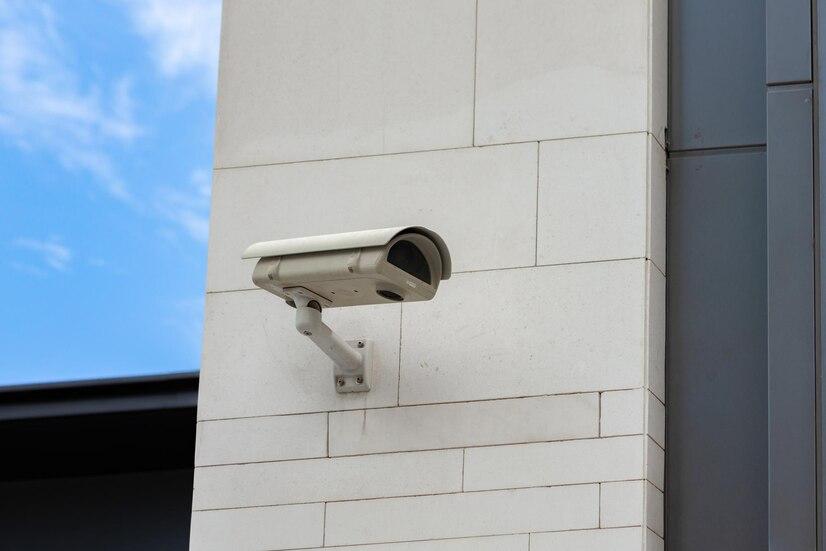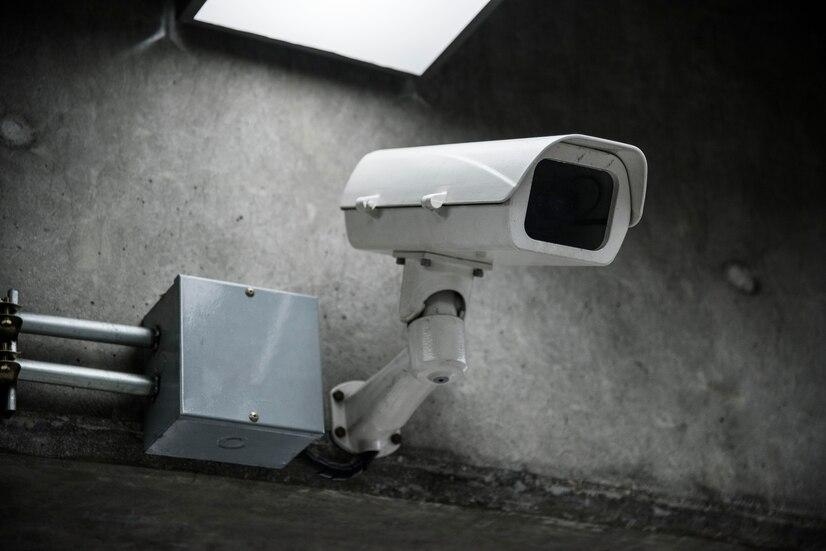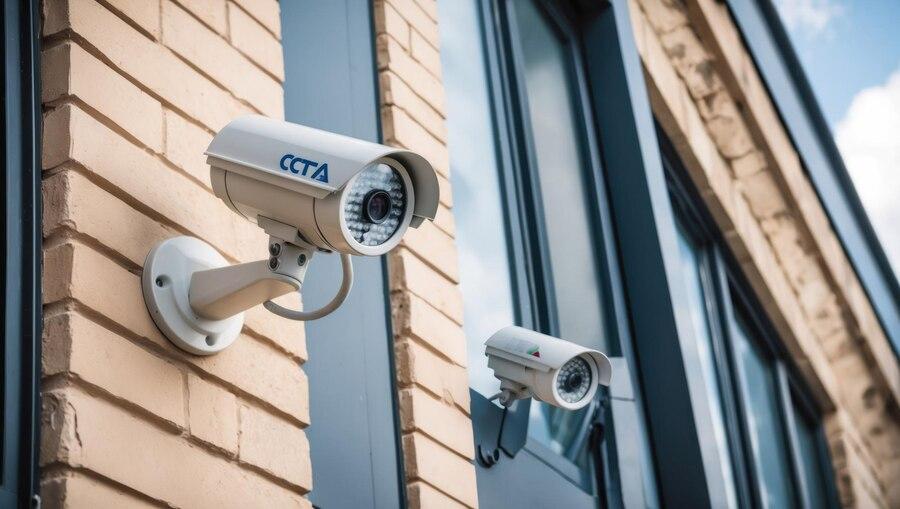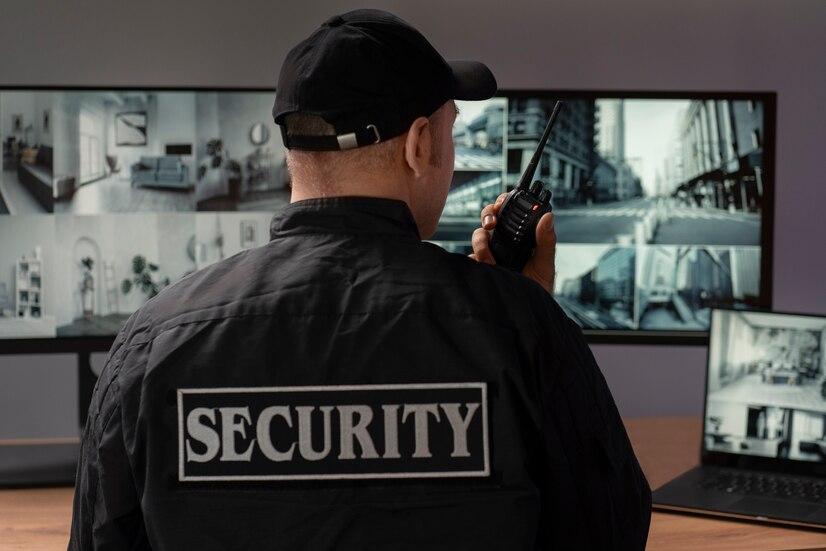

Table of Contents
- Introduction of CCTV
- What is CCTV?
- Importance of CCTV in Real Estate
- Common Uses of CCTV in Real Estate
- Benefits of CCTV in Real Estate
- CCTV Installation Considerations
- Modern Innovations in CCTV Technology
- Challenges in Implementing CCTV Systems in Real Estate
- Conclusion
- Faq's
Introduction of CCTV
CCTV, or Closed-Circuit Television, has become an essential security tool in the real estate industry. It involves the use of cameras to monitor and record activity within a property, providing real-time surveillance and protection. In real estate, CCTV systems are commonly installed in residential buildings, commercial spaces, and construction sites to ensure safety, prevent theft, and deter criminal activities. With advances in technology, CCTV systems have evolved to include features such as remote monitoring, night vision, and integration with smart home systems, making them indispensable for modern property management.
What is CCTV?
CCTV, or Closed-Circuit Television, refers to a video surveillance system where video cameras transmit signals to specific monitors, creating a "closed" or private network. Unlike broadcast television, CCTV footage is not transmitted publicly but is available only to authorized viewers. These systems consist of cameras, monitors, and recording equipment that capture and store video footage for security and monitoring purposes.
CCTV is widely used in various settings, including real estate, to provide surveillance for properties such as residential complexes, commercial buildings, and construction sites. It helps deter criminal activity, ensures safety, and monitors ongoing activities, contributing to the overall security of a property. Modern CCTV systems also feature advanced technology like remote viewing, motion detection, and integration with smart devices. CCTV
CCTV
Importance of CCTV in Real Estate
CCTV plays a crucial role in enhancing security and safety within the real estate sector. Here are key reasons why CCTV is essential in real estate:
Crime Deterrence: The presence of CCTV cameras acts as a deterrent for potential criminals, reducing the risk of theft, vandalism, and break-ins. This is especially important in residential complexes, commercial properties, and construction sites.
Increased Property Value: Properties with CCTV systems are often seen as safer and more secure, which can lead to an increase in market value. Buyers and tenants prefer properties that offer advanced security measures.
Improved Safety: CCTV systems allow for real-time monitoring of a property, helping to quickly identify and respond to security incidents. This enhances the safety of residents, tenants, and visitors.
Monitoring and Surveillance: Property managers can keep an eye on various areas such as parking lots, entrances, and shared spaces. In commercial real estate, CCTV helps monitor employee activity and building operations.
Evidence Collection: CCTV footage serves as valuable evidence in the event of disputes or criminal activities, providing a clear record of incidents. This is helpful for resolving legal issues, insurance claims, or conflicts among tenants.
Staff and Maintenance Monitoring: CCTV allows property owners to monitor maintenance staff, contractors, and cleaning personnel, ensuring efficient work practices and accountability.
Lower Insurance Premiums: Some insurance companies offer lower premiums for properties with CCTV, as they are considered lower risk due to the enhanced security. CCTV in Real Estate
CCTV in Real Estate
Common Uses of CCTV in Real Estate
CCTV systems are widely used across various real estate settings to enhance security, monitor activities, and provide safety to occupants and visitors. Some of the common applications of CCTV in real estate include:
Residential Complexes:
CCTV is installed in apartment buildings, gated communities, and housing complexes to monitor entrances, exits, hallways, parking areas, and common areas. This ensures the safety of residents and deters potential criminal activity.
Commercial Properties:
In office buildings, shopping centers, and business parks, CCTV is used to monitor both the interior and exterior premises. Cameras help in tracking customer and employee movements, securing restricted areas, and preventing theft or vandalism.
Construction Sites:
Construction projects often involve valuable materials and equipment, making them vulnerable to theft. CCTV surveillance ensures that construction sites are monitored, preventing unauthorized access and protecting assets.
Parking Areas:
Parking lots and garages in residential or commercial buildings are equipped with CCTV to monitor vehicles, detect suspicious activities, and ensure the safety of visitors and vehicle owners. This is particularly useful in deterring car theft and vandalism.
Entrances and Exits:
CCTV systems at the main entry and exit points of a building allow property managers to track who enters and leaves the premises. This helps with security and provides a record for future reference if needed. Uses Of CCTV in Real Estate
Uses Of CCTV in Real Estate
Benefits of CCTV in Real Estate
CCTV systems provide numerous advantages in the real estate sector, significantly enhancing security, property management, and overall safety. Key benefits include:
Crime Deterrence:
The mere presence of CCTV cameras discourages criminal activities such as theft, vandalism, and trespassing. Criminals are less likely to target properties with visible surveillance systems, thereby reducing the likelihood of incidents.
Increased Property Value:
Properties equipped with CCTV systems are more attractive to buyers and tenants due to the added layer of security. As a result, they often command higher rental rates or sale prices, making them more valuable in the market.
Improved Security and Safety:
CCTV systems allow real-time monitoring of a property, ensuring that suspicious activities can be detected early. This enhances the safety of residents, tenants, employees, and visitors by providing a quick response to potential threats.
Remote Monitoring:
With modern CCTV systems, property owners and managers can monitor their properties remotely from smartphones or computers. This feature provides 24/7 access to surveillance footage, making it easier to manage security even from a distance.
Evidence Collection:
CCTV footage serves as reliable evidence in the event of a crime, accident, or dispute. It can help resolve conflicts among tenants, verify insurance claims, and assist law enforcement in investigations, providing clear visual records of incidents.
Lower Insurance Premiums:
Some insurance companies offer discounts or lower premiums to properties with active CCTV systems. This is because properties with enhanced security are considered lower risk, leading to potential savings for property owners. Benefits Of CCTV
Benefits Of CCTV
CCTV Installation Considerations
When installing CCTV systems in real estate properties, several important factors should be taken into account to ensure effectiveness, compliance, and proper functioning. Key considerations include:
Camera Placement:
Strategic placement is critical to maximize coverage and minimize blind spots. Cameras should be positioned at entrances, exits, parking areas, common areas, and other high-traffic or vulnerable points.
Avoid placing cameras in areas that may infringe on privacy, such as bathrooms or changing rooms.
Type of Cameras:
Indoor vs. Outdoor: Choose cameras that are suited for the environment. Outdoor cameras should be weather-resistant and have night vision capabilities.
Fixed vs. PTZ Cameras: Fixed cameras cover specific areas, while PTZ (pan-tilt-zoom) cameras allow for broader coverage with the ability to move and zoom in on subjects.
Bullet vs. Dome Cameras: Bullet cameras are more visible and can deter crime, while dome cameras are more discreet and blend with the property's aesthetics.
Resolution and Image Quality:
High-resolution cameras provide clearer images, making it easier to identify individuals and capture details such as license plates or faces. Opt for HD or 4K resolution cameras for better surveillance.
Consider cameras with low-light or night vision capabilities for 24/7 monitoring, especially in low-light environments.
Data Storage and Retention:
Ensure that your CCTV system has sufficient storage capacity to retain footage for a specified period, typically 30 to 90 days, depending on legal and operational requirements.
Consider cloud-based storage options for remote access and longer retention, or use local storage with secure access control.
Legal Compliance and Privacy:
Familiarize yourself with local laws and regulations governing the use of CCTV in residential and commercial properties. For example, there may be restrictions on where cameras can be placed or how long footage can be stored.
Install signage to notify residents, tenants, and visitors that the premises are under surveillance, as this is required by law in many jurisdictions.
Power Supply and Backup:
Ensure that all cameras are connected to a reliable power source. For critical areas, consider installing cameras with battery backups or using Power over Ethernet (PoE) systems to maintain surveillance during power outages.
Network and Connectivity:
For IP (Internet Protocol) cameras, reliable internet connectivity is essential for remote monitoring. Ensure the property's network infrastructure can support the number of cameras and the bandwidth they require.
Wireless cameras can be easier to install but may be more vulnerable to connectivity issues. Ensure a stable Wi-Fi connection or use wired systems for critical areas.
Modern Innovations in CCTV Technology
CCTV technology has evolved significantly, offering enhanced features and capabilities that improve security, efficiency, and convenience. Modern innovations in CCTV systems are transforming how real estate properties are monitored and secured. Here are some of the key advancements:
AI-Powered Surveillance:
Artificial Intelligence (AI) has revolutionized CCTV by enabling advanced video analytics, such as facial recognition, behavior analysis, and object detection. AI-powered cameras can identify suspicious activities, loitering, or intrusions and alert security personnel in real time.
Cloud-Based Storage:
Cloud technology allows CCTV footage to be stored remotely, making it easier to access, manage, and retrieve video data. Cloud storage also eliminates the risk of data loss from physical damage to on-site storage devices and allows for scalable storage capacity.
4K Ultra-HD Cameras:
4K cameras offer ultra-high-definition video quality, providing crystal-clear images with fine details. This level of clarity is essential for identifying individuals, license plates, and small details that lower-resolution cameras may miss.
Thermal Imaging Cameras:
Thermal cameras detect heat signatures and can operate in complete darkness or through smoke and fog. These cameras are particularly useful for perimeter surveillance and in areas where traditional cameras may struggle due to poor visibility.
Wireless CCTV Systems:
Wireless CCTV systems provide greater flexibility and easier installation compared to wired systems. They are ideal for locations where running cables is difficult or impractical. Modern wireless systems also offer stable and secure connectivity.
Integration with Smart Devices:
CCTV systems can now be integrated with smart home and office technologies. Users can access live feeds, control cameras, and receive alerts through smartphones, tablets, or smart displays, allowing for remote monitoring and management.
Video Analytics and Motion Detection:
Advanced motion detection and video analytics enable cameras to filter out unnecessary footage, such as changes in lighting or minor movements, and focus on significant events like unauthorized entry or aggressive behavior. This reduces false alarms and saves storage space.
Challenges in Implementing CCTV Systems in Real Estate
While CCTV systems offer numerous benefits, their implementation comes with certain challenges that property owners and managers need to address for successful deployment. Some of the key challenges include:
Privacy Concerns:
One of the biggest challenges with CCTV installation is balancing security with privacy. Cameras need to be placed in locations that ensure public safety without infringing on personal privacy, such as in residential buildings, bathrooms, or personal spaces.
Strict regulations exist regarding the use of surveillance in public and private spaces, making compliance essential to avoid legal issues.
Compliance with Legal and Regulatory Standards:
There are numerous legal frameworks governing CCTV installation, including data protection laws, local surveillance regulations, and labor laws. Ensuring compliance can be complex, particularly when it comes to recording footage, storing data, and sharing with third parties.
Regulations like GDPR in Europe require that footage must be handled carefully to protect individuals' rights, adding complexity to data management.
High Initial Cost:
Installing a comprehensive CCTV system can be expensive. Costs include purchasing high-quality cameras, data storage solutions, power backup systems, installation fees, and ongoing maintenance. The initial investment may be a barrier, particularly for small-scale property owners.
Maintenance and Upkeep:
CCTV systems require regular maintenance to ensure optimal performance. This includes cleaning the cameras, upgrading software, replacing faulty components, and managing data storage. Without proper maintenance, cameras can malfunction or produce poor-quality footage.
Ensuring that the system operates smoothly and keeps up with technological advances requires ongoing attention and resources.
Bandwidth and Storage Limitations:
CCTV systems that stream high-definition or 4K footage require substantial bandwidth and storage. Large properties with multiple cameras can quickly run into issues related to data management and storage capacity.
Cloud storage options can address some of these challenges but come with additional costs and potential security concerns over data stored online.
Conclusion
CCTV systems are a valuable asset in real estate, providing enhanced security, reducing crime, and increasing property value. As technology continues to improve, the role of CCTV in real estate will likely expand, offering even more sophisticated security solutions for property owners and managers.
explore further
Latest from Encyclopedia
More from Interactions
Resources
Dwello, for every home buyer, is a way to go from 'I feel' to 'I know', at no extra cost.


